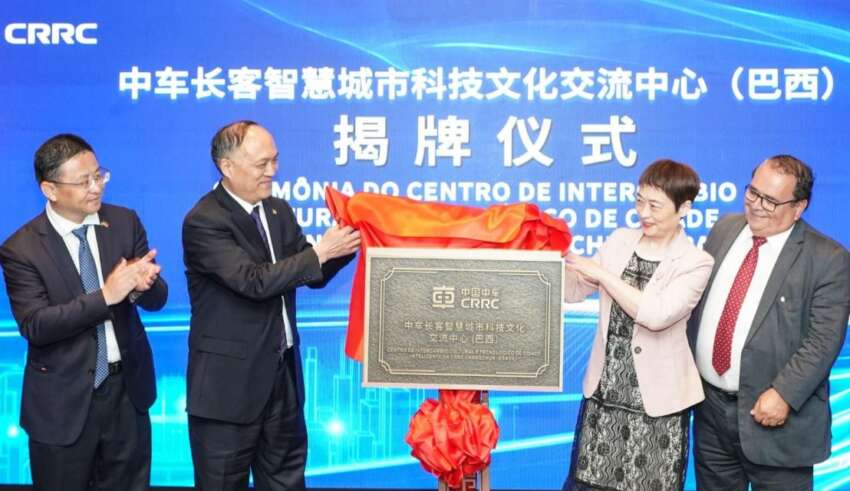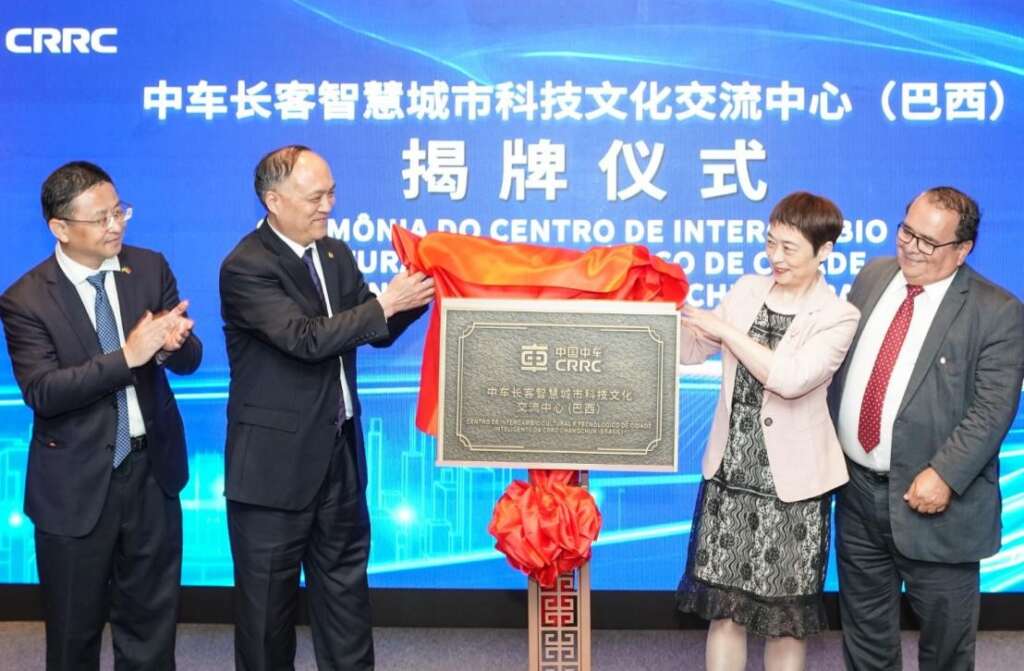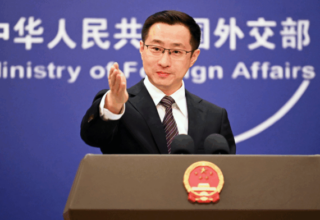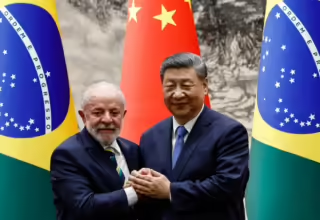
At 3:50 a.m. on Nov. 8, a cargo plane from Hong Kong, China, loaded with packages from cross-border e-commerce platforms such as AliExpress and SHEIN, landed at an airport in Sao Paulo, Brazil.
In a bonded warehouse at the airport, Denise Capitol, operations manager of Anjun Express in Brazil, a cross-border e-commerce logistics company, was busy arranging the reception of the goods, while a high-speed sorting machine was scanning, weighing, photographing, and sorting the packages.

A local employee of Chinese company TCL checks the operation of equipment in a workshop of a television manufacturing base owned by the company in Manaus in Brazil’s Amazonas state. (People’s Daily/Xu Hailin)
“The volume of cross-border e-commerce orders between Brazil and China is continuously growing, and now we handle about 30 air cargo pallets every day,” Denise said.
With a population exceeding 200 million and a rapidly growing number of internet users, Brazil has vast potential in the e-commerce market. In 2023, the country’s retail e-commerce revenue reached 185.7 billion reals ($32.08 billion), and there were 87.8 million online consumers.
Chinese e-commerce platforms are intensifying their investments in Brazil, optimizing supply chains and improving logistics efficiency to offer consumers a diverse range of products and a high-quality shopping experience.
AliExpress is actively promoting overseas warehouse construction in Brazil. SHEIN has announced plans to invest 750 million reals in Brazil over the next few years, aiming to collaborate with 2,000 manufacturers to build a localized supply chain. Online marketplace Temu operated by Chinese e-commerce company PDD Holdings has quickly gained market share in Brazil by leveraging its competitive pricing.
China and Brazil are also expanding cooperation in areas such as digital infrastructure, digital technology, and smart cities.
Chinese tech giant Huawei has deployed over 8,000 kilometers of optic fiber in Brazil’s Amazon rainforest, helping more Brazilians access broadband internet.
China Telecom’s Brazilian subsidiary has completed the construction of a network operations hub in Sao Paulo, providing high-quality network services for both Chinese and Brazilian companies.

A China-Brazil smart city technology and cultural exchange center established by China’s CRRC Changchun Railway Vehicles Co., Ltd. is inaugurated in Rio de Janeiro, Brazil in March 2023. (Photo provided by CRRC)
Chinese electronics company TCL has established a digital television production line in Brazil’s Manaus, leveraging smart manufacturing to enhance production efficiency.
Besides, CRRC Changchun Railway Vehicles Co., Ltd. has founded a China-Brazil smart city technology and cultural exchange center in Rio de Janeiro.
José Acácio Ferreira, director general of the Superintendence of Economic and Social Studies of Bahia State, Brazil commented that cooperation between Brazil and China now spans multiple fields. The increasingly close economic ties between the two nations bring substantial benefits to their people.
He said Brazil hopes to fully leverage the opportunities arising from China’s commitment to expanding high-level opening up and further promote the steady development of pragmatic cooperation between the two countries.
As the two countries celebrate the 50th anniversary of the establishment of their diplomatic relations, they are exploring new potential and deepening comprehensive cooperation to bring real benefits to their citizens.
Brazil-China relations have the potential to further diversify, particularly in emerging fields like the digital economy, renewable energy, and sustainable development, said Brazilian Foreign Minister Mauro Vieira. By continuing to work together, Brazil and China will not only strengthen bilateral friendship and mutual respect but also contribute to building a fairer, more peaceful, and prosperous world, he added.







